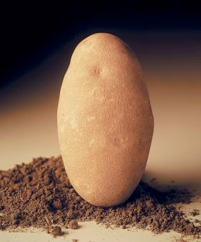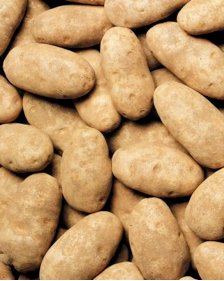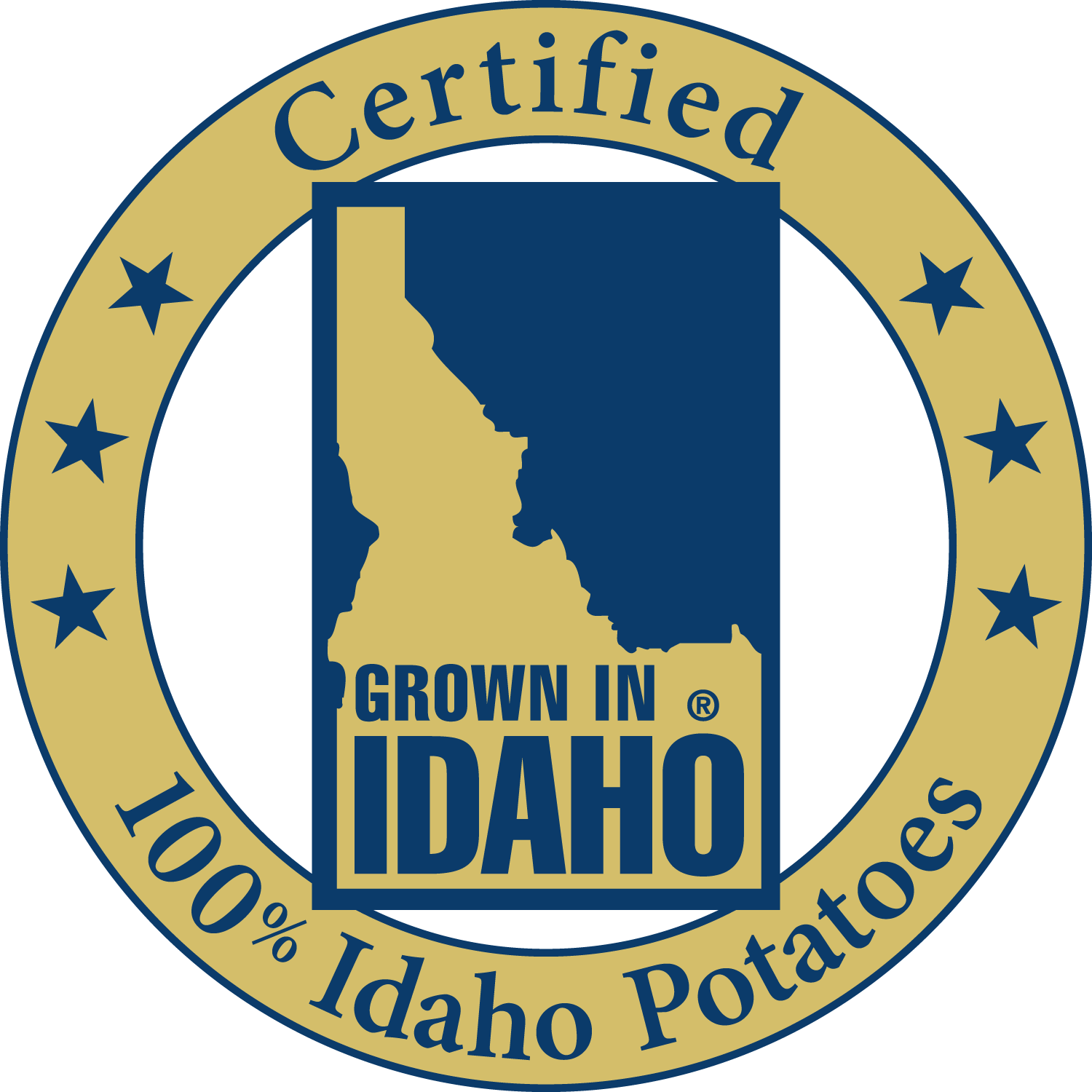Popular Tags
Ask Dr. Potato
With 939 posts, chances are there's already an answer to your question. Please try searching below before submitting a question to Dr. Potato. Use multiple words to help narrow down the results. For example, search for "potatoes" and "group" if looking for an answer on cooking potatoes for large groups.
Dr. Potato Loves All Potatoes Not Just The One’s Recommended By Prevention Magazine -Organic Potatoes
Prevention Magazine suggests that consumers pick only organic potatoes for their consumption. While organic is available most times at the markets I shop at, they are more expensive, especially when I buy for my family, usually wanting 5-10 pounds at a time. Are conventional potatoes as bad as they make them out to be?
 Conventional and organic potatoes are absolutely one of the best nutrition bargains available for a family to eat and I don’t feel that scare tactics should chase you away from a food that is consumed year after year in huge quantities with very little risk. Check out this Science Calculator.
Conventional and organic potatoes are absolutely one of the best nutrition bargains available for a family to eat and I don’t feel that scare tactics should chase you away from a food that is consumed year after year in huge quantities with very little risk. Check out this Science Calculator.
And when I asked one of our potato grower/shippers to respond to the section on organic potatoes in the 7 foods to avoid, he said:
I have been eating the potatoes we grow commercially and pack for the past 58 years. We frequently take potatoes home from the packing shed that would ordinarily be sold and shipped to anyone, anywhere and we do nothing special to any of them. As I indicated, I am now 58 years old and was told by the examining doctor at a recent health check that my body was in as good of shape for my age as anyone he has seen. I attribute my good health to exercise and a good diet that includes a lot of potatoes. There is rarely a day that goes by where I don’t eat at least one meal with potatoes. If the products we apply to grow a quality crop of potatoes were harmful I would think that it would have started to show up in my body before now, especially considering the quantity of potatoes that I eat.
I might also add that I have rarely eaten organic produce-including potatoes. Although I have nothing against organic produce, I am unwilling to pay the extra cost to purchase organic as I believe conventional produce to be safe. I have no concerns about harmful residues in commercially grown crops as long as the producer follows all guidelines on all products being applied. We are required by our food safety guidelines to secure a list of all chemicals applied, that rate at which they are applied, and the application dates, whether on our own farms or those of outside growers in order to verify that all labels are being correctly followed. In addition to this step, we are subject to surprise visits from USDA where they pull random samples of product from our facility to check for residues. There has never been a report back from USDA of any of our products containing harmful residues.
Sincerely,
Lynn Wilcox
lynn@wilcoxfresh.com
 Idaho grows about 13 billion potatoes a year, doing it very efficiently on a little over 300,000 acres of farm land. The potato growers rotate their crops, planting potatoes no more than 2-3 years in a row. Idaho® potatoes are harvested once during the year. Some go right into circulation and are sorted and sold to foodservice or grocery stores, but most go into storage. After approximately 120 days, even under ideal temperature and humidity storage, the potatoes will start to sprout. The same thing happens if placed in a cool dark area in your house and forgotten about. Sprouts, when small, can be knocked off; however, we don’t recommend eating sprouts as they taste bitter. Trim off the sprouts and they will be fine to eat.
Idaho grows about 13 billion potatoes a year, doing it very efficiently on a little over 300,000 acres of farm land. The potato growers rotate their crops, planting potatoes no more than 2-3 years in a row. Idaho® potatoes are harvested once during the year. Some go right into circulation and are sorted and sold to foodservice or grocery stores, but most go into storage. After approximately 120 days, even under ideal temperature and humidity storage, the potatoes will start to sprout. The same thing happens if placed in a cool dark area in your house and forgotten about. Sprouts, when small, can be knocked off; however, we don’t recommend eating sprouts as they taste bitter. Trim off the sprouts and they will be fine to eat.
A group of products such as “Sprout-Nip” is added into a liquid solution that is misted by a series of fans into large metal tubes along the base of a pile of potatoes, while in very large storage facilities, sometimes a football field long. As the fog rises it creates an atmosphere that inhibits the growth of sprouts. Idaho farmers don’t use this automatically; they wait until there is evidence of the starting of sprouting. Sprout Nip is applied as a fog or emusifiable spray, and one gallon treats 288,000 pounds of potatoes. That’s pretty diluted!
As far as which is less harmful to eat (by the way, our food supply system in the USA is amazingly safe when the volume of food products is thrown into the equation), I think the correct answer is that we all need to eat more fruits and vegetables. They are a lot better for us (and one Idaho® russet potato typically costs about a quarter in the store) than many other food choices.
Share This

Dr. Potato isn't a real doctor but a team of potato experts ready to answer all your potato questions.
Click here to submit »
Dr. Potato Categories
The Idaho Potato Commission
Established in 1937, the Idaho Potato Commission (IPC) is a state agency that is responsible for promoting and protecting the famous "Grown in Idaho®" seal, a federally registered trademark that assures consumers they are purchasing genuine, top-quality Idaho® potatoes. Idaho's ideal growing conditions, including rich, volcanic soil, climate and irrigation differentiate Idaho® potatoes from potatoes grown in other states.
Contact
661 South Rivershore Lane
Suite 230
EAGLE, ID 83616
Phone: 208-334-2350
Fax: 208-334-2274
More

